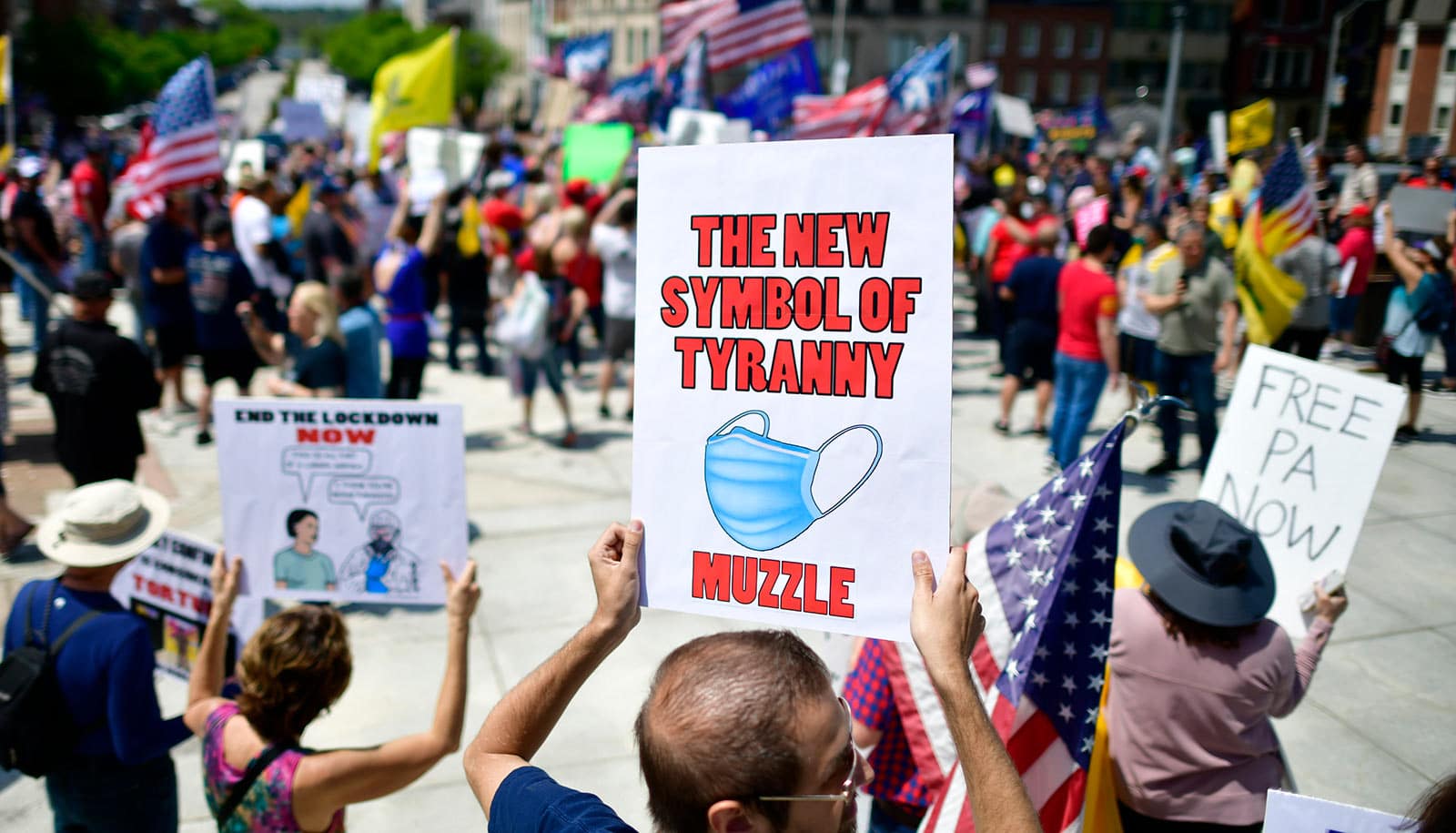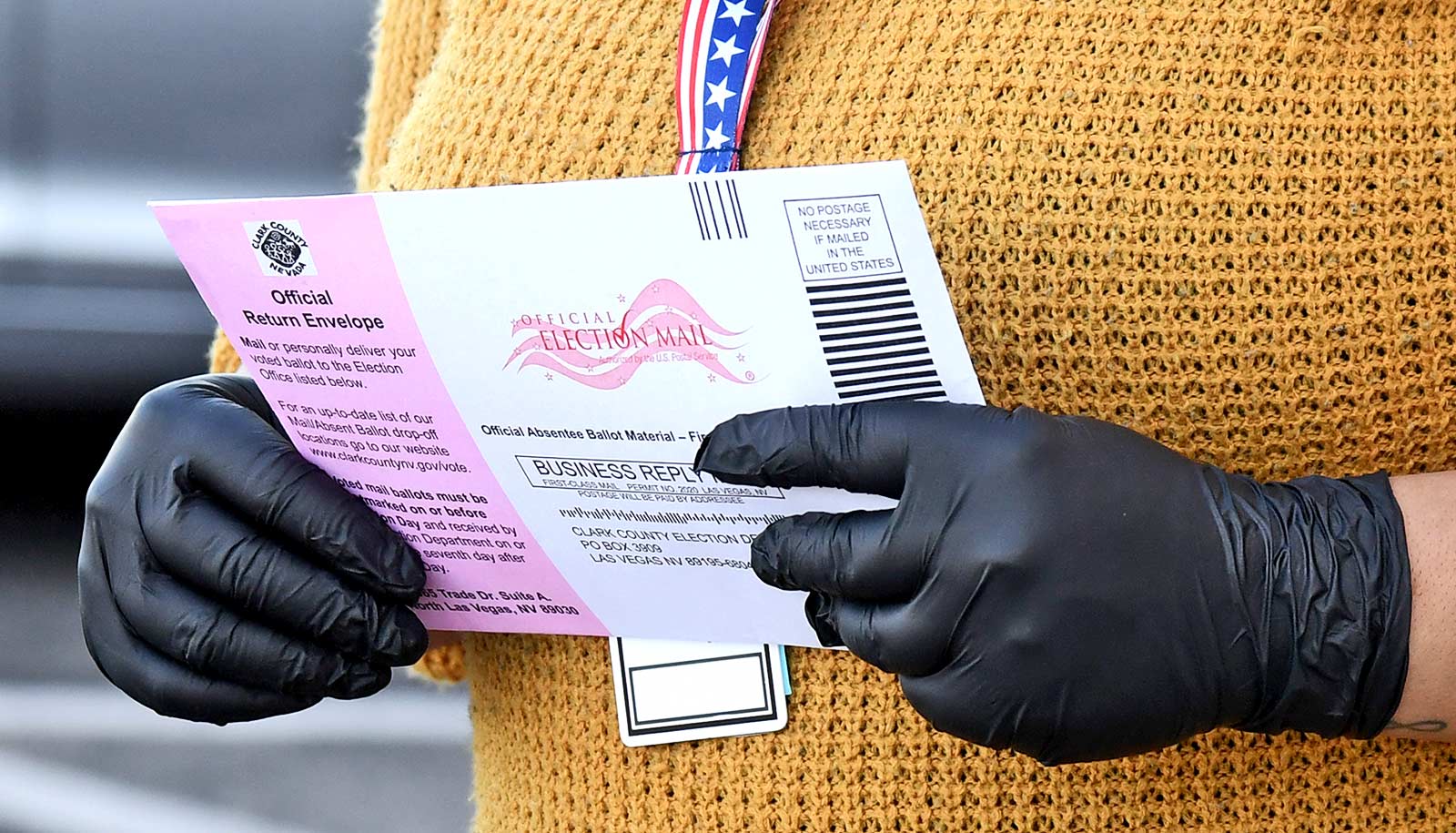In the United States, even the meanings of some words are now polarized, research finds.
Everyone is speaking English, say the scientists, but computer analysis of social media discussions shows viewers of different news channels are, in a sense, speaking different languages.
Based on millions of user comments on the YouTube channels for four leading cable news outlets, it seems that viewers of right-wing outlets think of “Burisma,” in the same way that their left-wing counterparts think of “Kushner.” A “protest” to one set of viewers is a “riot” to another. For one, it’s a “mask,” to another, a “muzzle.”
“Black Lives Matter” (BLM) in CNN English is equivalent to “All Lives Matter” in Fox News English. Even more extreme, some right-wing news viewers use “BLM” in the same context as left-wing news viewers use “KKK” (Ku Klux Klan).
“Some of these so-called misaligned pairs seem pretty obvious,” says Mark S. Kamlet, professor of economics and public policy at Carnegie Mellon University. “But it’s surprising how different some of them are. It gives you a sense of the really tragic polarization that exists today.”
A paper on the findings has been submitted to a computer science conference and is available on arXiv.
Polarized words
Modern machine translation methods determine the meaning of a word based in large part on context—the other words that it usually appears closest to in texts. “Hello” in English and “hola” in Spanish are identical greetings and, thus, appear in the same context in different languages.
The idea behind the new research was to use the same method to analyze the polarization of social media, says Ashiqur KhudaBukhsh, a project scientist in the School of Computer Science’s Language Technologies Institute. The goal was to find different English words that are used in the same context by people speaking different news languages.
For instance, a conservative might say “Democrats are the greatest threat to America today,” while liberals might say “Republicans are the greatest threat to America today.” Democrats and Republicans are used in the same context, making them misaligned pairs and an indication of political polarization.
86.6 million comments
To perform their analysis, the researchers used a data set of 86.6 million comments by 6.5 million users to more than 200,000 news videos from CNN, Fox News, MSNBC, and One America News Network (OANN). The software completes the analysis automatically, without human intervention.
“We think our method is powerful because it’s efficient,” KhudaBukhsh says. “You don’t have to read millions of comments. But if you know that ‘mask’ translates into ‘muzzle,’ you immediately know a debate is going on surrounding freedom of speech and mask use.”
In addition to detecting these misaligned pairs, the method also calculates the degree of similarity between the “languages.” In a four-way analysis of CNN, MSNBC, Fox News, and OANN, words translated from MSNBC English to CNN English had a 63% similarity, while words translated from MSNBC English to OANN English had just a 42% similarity.
The researchers also compared the comments of viewers of CNN, Fox News, and MSNBC with more than 4 million comments by viewers of late night comedians Trevor Noah, Seth Meyers, Stephen Colbert, Jimmy Kimmel, and John Oliver. They found words translated from Fox News English to comedian English were 75% similar, while words translated from CNN English to comedian English were 83% similar.
Doing the same analysis by hand would be impossible, says Kamlet.
“We use a standard statistical package that takes each word and maps it into a 100 dimension space,” he explains. “Obviously, you might be able to do cross tabs by hand. But even with cross tabs, you’re talking about millions of comments.”
Source: Carnegie Mellon University



